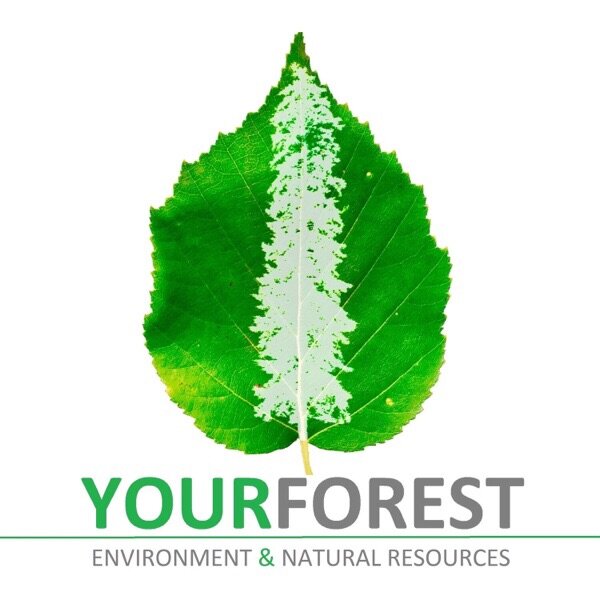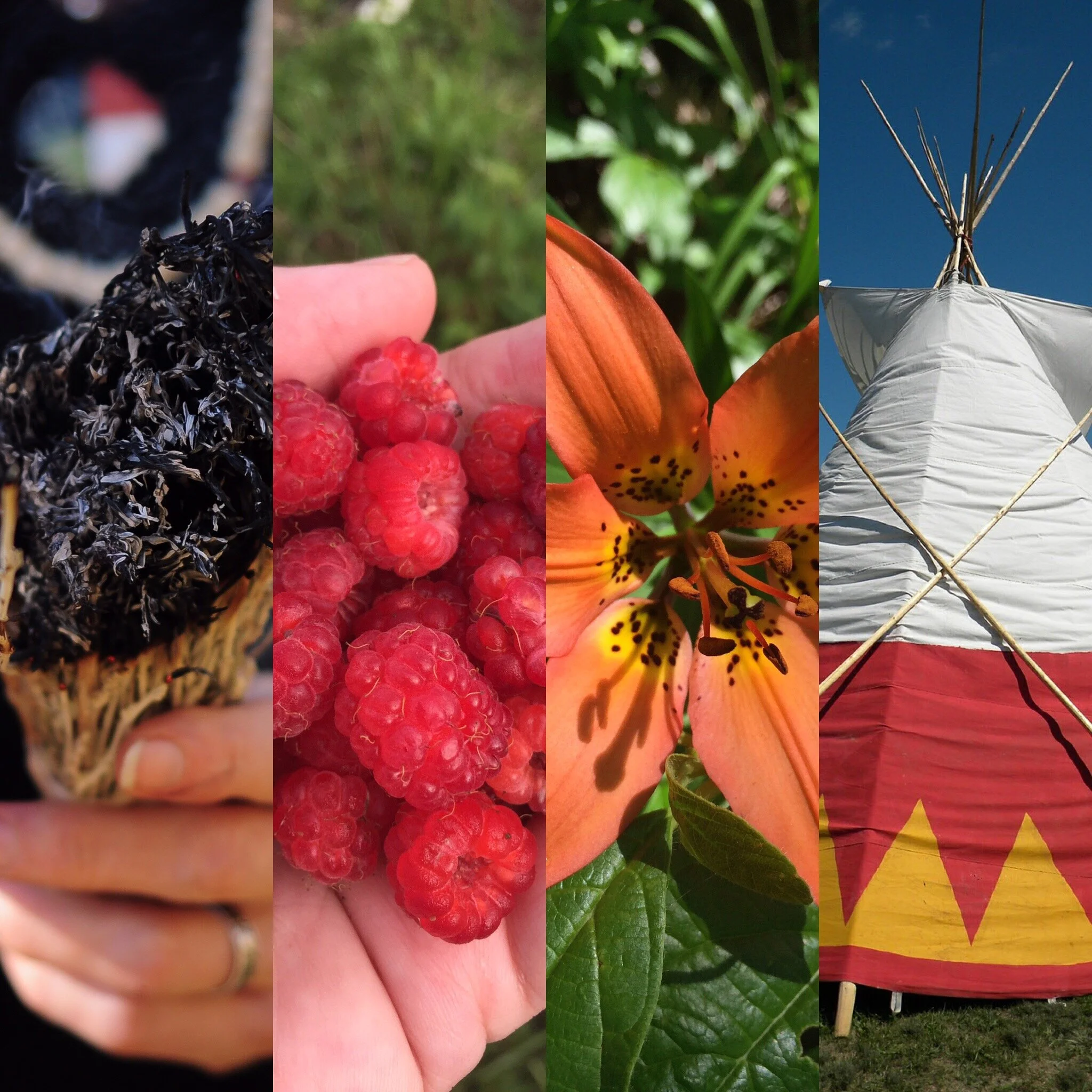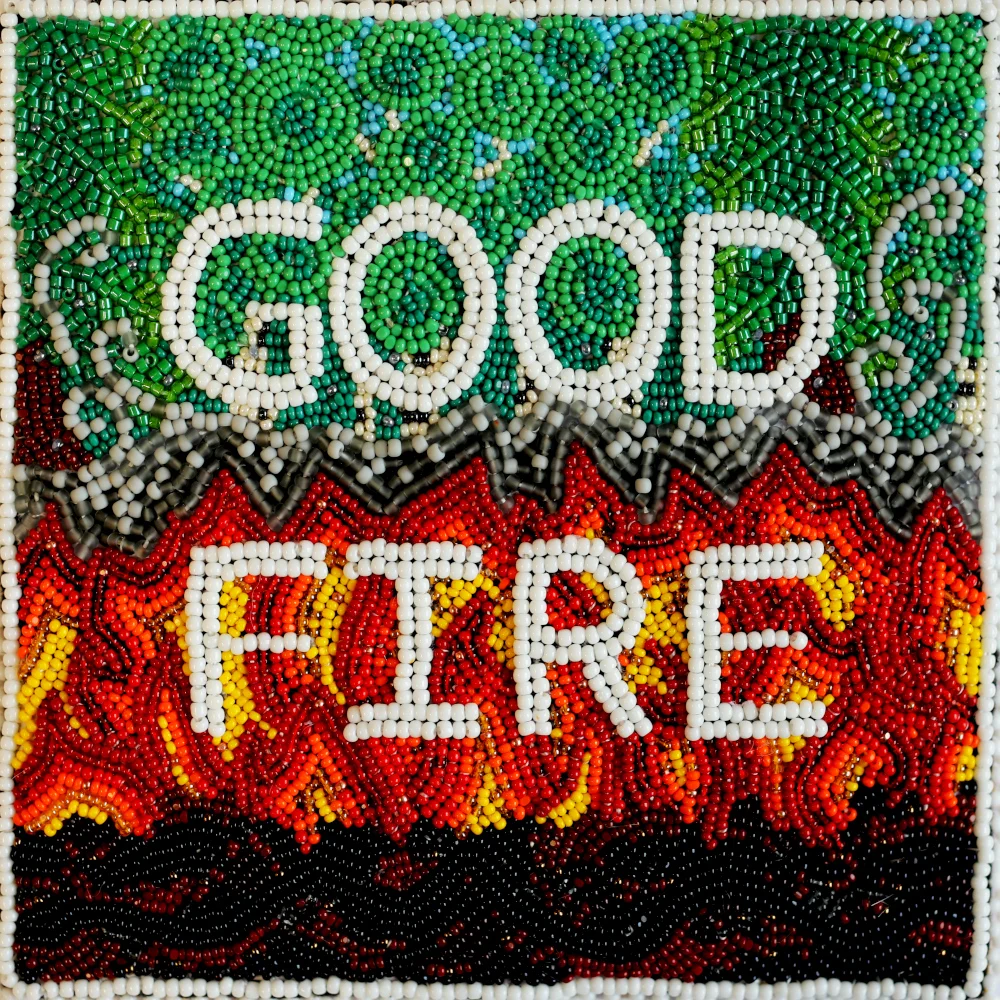Climate change has already begun to cause problems for forest management in Canada. These challenges can be difficult to recognize, and even more daunting to solve. However, with some change in perspective, we can begin to find simple solutions to large problems. Sheri and Mark have dedicated their professional lives to finding ways to help industry, and other stakeholders, tackle this seemingly overwhelming challenge of adapting to climate change. This problem does not require a new management system, just a new perspective and real engagement.
#76-Indigenous Consultation with Nathan Lauer
Indigenous people have lived in the Boreal forest since time immemorial, depending on the land for the health of their culture and community. Since colonization, it has become increasingly more difficult for them to acquire what they need as more and more people utilize the resources for their own purposes. As environmental professionals we have a professional and moral obligation to, first and foremost, protect the public resource. Those resources include indigenous rights and traditional use. More needs to be done to create an environment of cooperation and trust so that we can move into the future together to create a better tomorrow for everyone. During this conversation, we do an overview of a conference put on by the Canadian Institute of Forestry regarding indigenous consultation. Lots of emotion, frustration and great conversation.
#75-Changing Regeneration with Phil Comeau
How can we sequester more carbon, reduce the use of herbicide, produce more wood fibre, all while approaching a more "natural” method of forest regeneration? Phil thinks there may be a way. We discuss how the Boreal forest regenerates naturally, how we have historically regenerated after forest harvest and why there is such a gap between these two things. The first 27 minutes is just an overview of natural succession, setting the foundation for this discussion. Then we jump into the nitty gritty details of why it may be important to start transitioning cutblock regeneration into something more approaching natural forest succession, and how we can start to do that.
#74-Grizzly with Scott Nielsen
Grizzly bears are the second-largest land predator on the planet, next to the polar bear. They hold such mystique and wonder in our society and have come to represent "true wilderness" in the eyes of many. They are a truly incredible animal that needs to be protected for future generations to enjoy. Scott and I discuss the state of grizzly bears in Alberta, population levels, habitat, etc. We eventually get to talking about the effects of human disturbance on grizzly population numbers and how we can better manage our forests for these massive creatures. The answer may be more complicated then you think.
#73-Objectivity in Sustainability with Todd Nash
Forests hold many values for human kind. From housing species at risk and cleaning our water supply to economic prosperity and cultural empowerment. Objectivity, in deciding which of these values needs attention, is needed to make sure we don’t get over-focused on one specific issue while neglecting the others. The Forest Resource Improvement Association of Alberta (FRIAA) is an organization dedicated to improving forest resources for the people of Alberta. This means staying objective while deciding which programs to fund. Todd Nash is the Manager of FRIAA and came in to talk about how the success of this non-profit has lead to better forests for everyone and how we can maintain objectiveness in management.
#72-Burning in Australia with Amy Cardinal Christianson, Trent Nelson and Tim Kanoa
‘Good Fire’ is a podcast series about cultural burning around the world. I was fortunate enough to get to be a part of the conversations, even though my contribution was often one of ignorant questions. It is a great series that delves into the conversations around cultural burning and its impacts on local communities and environment. Today’s episode is the second of the ‘Good Fire’ series, we spoke to two gentlemen in Australia about their connection to the land and what burning means to their mobs and the larger Australian public.
#71-Importance of Biodiversity with Tara Narwani
What makes biodiversity so important? Why is it so often discussed in environmental writing? How do we measure what a healthy amount of biodiversity looks like? Can you have too much, to little? What about human impact and its effect on biodiversity? Tara Narwani is the science communicator at The Alberta Biodiversity Monitoring Institute (ABMI), and she came on to discuss these questions.
#70-The Great Fire with Peter Murphy
In 1919, soldiers were returning home from World War 1, the average family was getting around using horses, and the new population of Canada was seeking to settle into farm country and prosper. Clearing land was an essential part to homesteading back then, as such, many fires were lit to burn brush to build “productive” agriculture land. With no resources available to fight forest fires, once a fire was lit it tended not to stop. With over 2 million hectares burned over 10 days, multiple fatalities and burned communities, this fire was one of the largest and most catastrophic wildfires in Canadian history. Peter J. Murphy has spent the last 3 and a half decades researching these fires that were almost lost to the history books. An incredible story.
#69-Grind and Pound with Wilson Sihlis
Grind and pound…I bet you didn’t expect this episode to be about tree planting, did you? But apparently that’s exactly what’s needed to be a good tree planter, you have to ‘grind’ your way through the bad weather and rough terrain, and ‘pound’ your way through tree after tree until the workday is done. Wilson spent 10 years in this world grinding and pounding trees till the cows come home. He has since joined the planning side of the plant and is a silvicultural forester organizing plants and many other crucial aspects of forest regeneration. We discuss the reality of planting and get into some of the basics behind how we decide what to plant where and why.
#68-What Is Conservation with Todd Zimmerling
Conservation is a word we are all familiar with, but what does it mean really? There are so many ways to define conservation based on what you are measuring and what you hope to accomplish. To some, it is pure, untouched wilderness, void of human contact. To others, protecting a small wetland or riparian area is also success. What about our role in protecting species from extirpation or extinction? What is our obligation? Do we spend countless millions of dollars protecting one charismatic species because public perception says it is important, while other, equally as important, species blink out of existence because we haven’t made a movie about them yet? How do we make the hard decisions, the ones no one wants to make?
#67-How Much Old Forest Is Too Much with David Andison
Healthy landscapes are something everyone wants. But what does that mean? How do we define what “health” in a landscape looks like? How do we know that we are correct in our assumptions? How do we know the parameters we use to measure sustainability are objective? How do we find out what is right for ecological health and resilience? David Andison has spent decades researching these questions and their answers. We dove into the depths of how we manage our natural world, where we may be going wrong, and where we need to be headed. The first 46 minutes is very philosophical, discussing the mindset and society needed to create healthy landscapes. The last 44 minutes was more specific around age-class distributions, habitat availability, and forest management.
#66-May The Forest Be With You with MJ Munn-Kristoff and Patti Campsall
Sustainability starts with education. If we want to see a sustainable future, one where we focus on the importance of ecology, conservation and sustainable energy, we need to spend time instilling environmental values on the children of today. Forest education is at the forefront of creating an eco-centric future. We need to teach our children the excitement and wonder that exists in our forests and natural ecosystems, it is crucial to a better future. MJ and Patti have worked for the last 19 years building a forest education system that helps build relationships and lasting change. MJ is the executive Director for the Lesser Slave Lake Forest Education Society(LSFES) and Patti is the Executive Director of the Boreal Center for Bird Conservation(BCBC), which is a partnership between Alberta Parks and the Lesser Slave Lake Bird Observatory(LSLBO). Together, MJ and Patti make an unstoppable team of learning power. We discussed the importance of building environmental values, how to get people excited and methods for building your own forest education system.
#65-An Indigenous Perspective with Fabian Grey
We all want healthy forest ecosystems, clean water and vibrant communities. We can achieve these goals through sustainable forest management(SFM). However, we need to continue to push the boundaries of what SFM is in order to ensure we don’t miss something. This means constant research, consultation and not being afraid to change how we do things in order to protect all values for all people, for ever. Indigenous people have been on this continent for thousands of years living with the land, instead of trying to tame it. Indigenous values have been all but lost in our society, and indigenous people have knowledge to offer that could help us better define SFM. We need to find a way to help indigenous communities feel heard and respected, so they can feel safe to share and help us all move towards a better system of forest management. Fabian is one man trying to bridge that gap between the western model and the indigenous one, to help us find a new and better path forward together.
#64-Good Fire With Amy Cardinal Christianson
Fire is a crucial part of the boreal forest. Without it the whole system falls apart. First Nations people have been using fire as a tool to manage the forest and help maintain ecosystem health for thousands of years. They would regularly burn the landscape, under safe and manageable conditions, in order to achieve very specific and controlled outcomes. These outcomes include habitat creation, growth of specific plants for medicine or food production, improved grazing land for ungulates, etc. Along with many environmental benefits that existed from indigenous burning, there was also a deeply cultural aspect. Indigenous people say that burning provided them with a connection to the land that was directly tied to community health. With burning outlawed the last century, many communities have lost the ability to connect to their culture and feel empowered by their ancestral knowledge. Amy Cardinal Christianson is an indigenous fire researcher trying to get cultural burning back on the land to rejuvenate forest health and ultimately for the benefit of all people.
#63-Climate Adaptation with Jason Edwards
We don’t know a planet like this. There is more CO2 in the atmosphere today then there has ever been in the entirety of human evolution, which is over 3 million years. This means that the greenhouse effect is in full swing and even if we stopped greenhouse gases today, the earth would continue to warm beyond what we have ever known. Adaptation is a necessity, and we need to be ready. It’s not the end of the world, but it is the end of the world we know. Jason Edwards has a positive and hopeful message about how we can begin to adapt to our changing environment. He has spent a long time collaborating and researching adaptation and how best to go about it. We have the tools and knowledge to make this happen, so let’s get started.
#62-Learning From Our Past with Peter Murphy
I thought we could take a look back into our history to see how we got here, and perhaps tease out what might happen next. I wanted to talk to someone with first hand experience with the evolution of sustainability and environmental stewardship. Luckily, I knew a guy. Peter Murphy is a legend in environmental management circles. He has devoted the last 70 some odd years of his life to environmental integrity. He even remembers when the word “sustainability” was first coined. He has a wealth of knowledge and he is worth listening to. Without him, we would likely not be where we are today in regards to sustainability.
#61-Firesmart, A New Paradigm with Laura Stewart
Wildfires are becoming more and more of a problem for modern society. In the past decade, we have seen an unprecedented increase in the number of catastrophic fires. Climate change has lengthened the fire season, increased temperatures, and increased severity and longevity of droughts. These new conditions drastically increases the probability of catastrophic fires, as is evident by the community destroying fires we have seen in the last 8 years in California, British Columbia and Alberta. Firesmart is a way to protect your home and community from these threats…and it works. Laura Stewart is the President of Firesmart Canada and came on to give her thoughts on the issue, and what people can do to prepare for wildfires.
#60-Pesticides with Ryan Prosser
Chemicals used on our crops and forests are of huge concern to society in general. Especially after problematic pesticides, like DDT, nearly wiped out bald eagles in the United States some decades ago. Now we are ever on the lookout for the next culprit. Which chemical will be the next big problem that affects our children’s development, our water, environment? Luckily for us, after the DDT scare, science and regulators buckled down big time to prevent anything like that from happening again. There is now a rigorous set of guidelines and regulations to ensure anything we put on the landscape is healthy, safe, and will have no adverse unintended affects. Scientists developing these chemicals spend decades ensuring they are safe before they are even considered for commercial use. We discussed why we use chemicals, how we know they are not only safe but could be considered to be the most environmentally supportive system, and the problems that would arise if we stopped using them completely. I know you are shaking your head, thinking “this guy is full of it”…I promise that this is the truth, backed by science. Don’t believe me, fine. At least listen to what the environmental toxicologist has to say, he studies this for a living.
#59-Trumpeter Swan Conservation with Mark Heckbert
Wildlife conservation is often a sad story. We hear that some species has been pushed to the edge of extinction because of us, and our lack of foresight or empathy. Until recently, Trumpeter Swans were not very different. Through nearly a century of effort, cross border partnerships, intense research and passionate nature lovers, we were able to make a difference in this species’ future on the planet. Mark Heckbert has been leading this battle in Alberta for over a decade and has a true passion for his work. His understanding and appreciation for this amazing species makes him the perfect person to discuss their resurrection, from less then 100 swans to the many thousands that exist today. This is a true conservation success story that would not be possible without generations of hard work and dedication in, what seemed to be, insurmountable odds.
#58-Understanding Science with Matthew Pyper
Humans are naturally curious beings. We want to know why, how and what is going on in the world around us. Science is the only tool we have to help us sort out the truth from the misconceptions. The scientific community is ruthless in its scrutiny and it will not ease up on any research that doesn’t hold up to logic. Science doesn’t care how you feel or what your bias’ may be, all logical fallacies are inevitably found out and exposed. Science leaves us with the truth as best we can measure and observe it using the technology of our time. The laws of nature are fixed, and our understanding of them is ever moving forward toward a complete comprehension. But only through science are such discoveries possible. Matthew Pyper came on to discuss the scientific method and how we might start to think about how we communicate science, and how we can bring more people into its understanding.





















